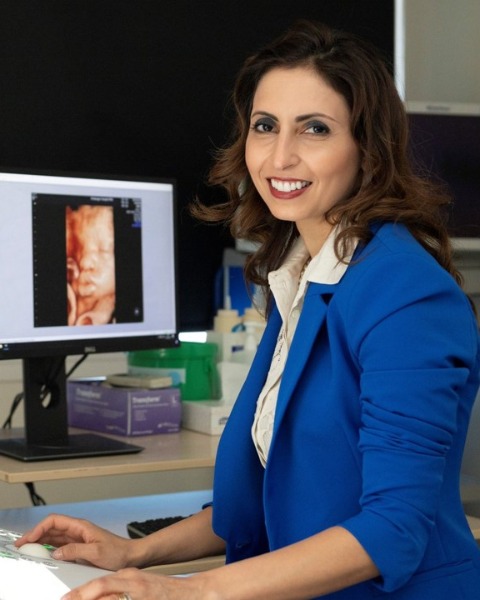Poster Session 2
(487) Diagnostic Accuracy of Non-Invasive Prenatal Test for Fetal Red Blood Cell Antigen Genotyping

Faezeh Aghajani, MD
Postdoctoral Research Fellow
Fetal Care and Surgery Center, Division of Fetal Medicine and Surgery, Boston Children’s Hospital and Harvard School of Medicine
Boston, MA, United States- PN
Parisa Najjariasl, MD
Postdoctoral Research Fellow
Yas Hospital Complex, Tehran University of Medical Sciences
Tehran, Tehran, Iran 
Enaja Sambatur, MD (she/her/hers)
Clinical Research Specialist
Fetal Care and Surgery Center, Division of Fetal Medicine and Surgery, Boston Children’s Hospital and Harvard School of Medicine
Boston, Massachusetts, United States.jpg)
Alireza A. Shamshirsaz, MD (he/him/his)
Department Director, Professor of Surgery
Fetal Surgeon Chief, Division of Fetal Medicine and Surgery Director of the Maternal Fetal Care Center Director of the Perinatal Surgery Fellowship Professor of Surgery, Boston Children’s Hospital Harvard Medical School
Boston, Massachusetts, United States
Asma Khalil, MD
Professor of Maternal Fetal Medicine
Fetal Medicine Unit, St George's Hospital, St George's University of London
London, England, United Kingdom
Hiba J. Mustafa, MD (she/her/hers)
Director of Fetal Surgery, Director of Placenta Accreta Spectrum Program
Indiana University and Riley Children's Hospital
Indianapolis, IN, United States
Submitting Author and Presenting Author(s)
Coauthor(s)
Study Design:
A systematic search was conducted into four databases up to May 2024. We included studies implementing NIPT for fetal RBC antigen detection in pregnancies at risk of alloimmunization. We calculated sensitivity, specificity, diagnostic odds ratios, and area under the curve. Analysis was conducted per laboratory technique including polymerase chain reaction (PCR) and next-generation sequencing (NGS) and subgroup analyses were performed per fetal antigen into RhC, Rhc, RhD, RhE, Kell, and Duffy (Fya) antigens.
Results: A total of 52 studies of which 48 (37228 maternal samples) used PCR and 4 (170 maternal samples) used NGS were included in the analysis. The diagnostic accuracy for the six antigens (RhC, Rhc, RhD, RhE, Kell, and Fya) in order are i) using PCR technique, the pooled sensitivity is 100% (95% C 99-100), 98% (95% CI 95-100), 100% (95% CI 99-100), 100% (95% CI 98-100), and 98% (95% CI 94-100), respectively and the pooled specificity is 99% (95% CI 99-100), 100% (95% CI 97-100), 100%(95% CI 91-100), 99% (95% CI 98-99), 100% (95% CI 99-100), and 100% (95% CI 97-100), respectively, and ii) using NGS technique, the pooled sensitivity is 100% (95% CI 75-100), 100% (95% CI 92-100), 100% (95% CI 89-100), 100% (95% CI 95-100), 100% (95% CI 93-100), 100% (95% CI 70-100), respectively and the pooled specificity is 100% (95% CI 79-100), 100% (95% CI 78-100), 100% (895% CI 6-100), 100% (95% CI 93-100), 100% (95% CI 96-100), 100% (95% CI 80-100), respectively.
Conclusion: NIPT can accurately detect six fetal blood group antigens of which antibodies are associated with fetal anemia. Clinical adoption of NIPT for the detection of fetal antigens for both alloimmunized and RhD‐negative non‐alloimmunized pregnant individuals may streamline care and reduce unnecessary treatment, monitoring, and patient anxiety.

